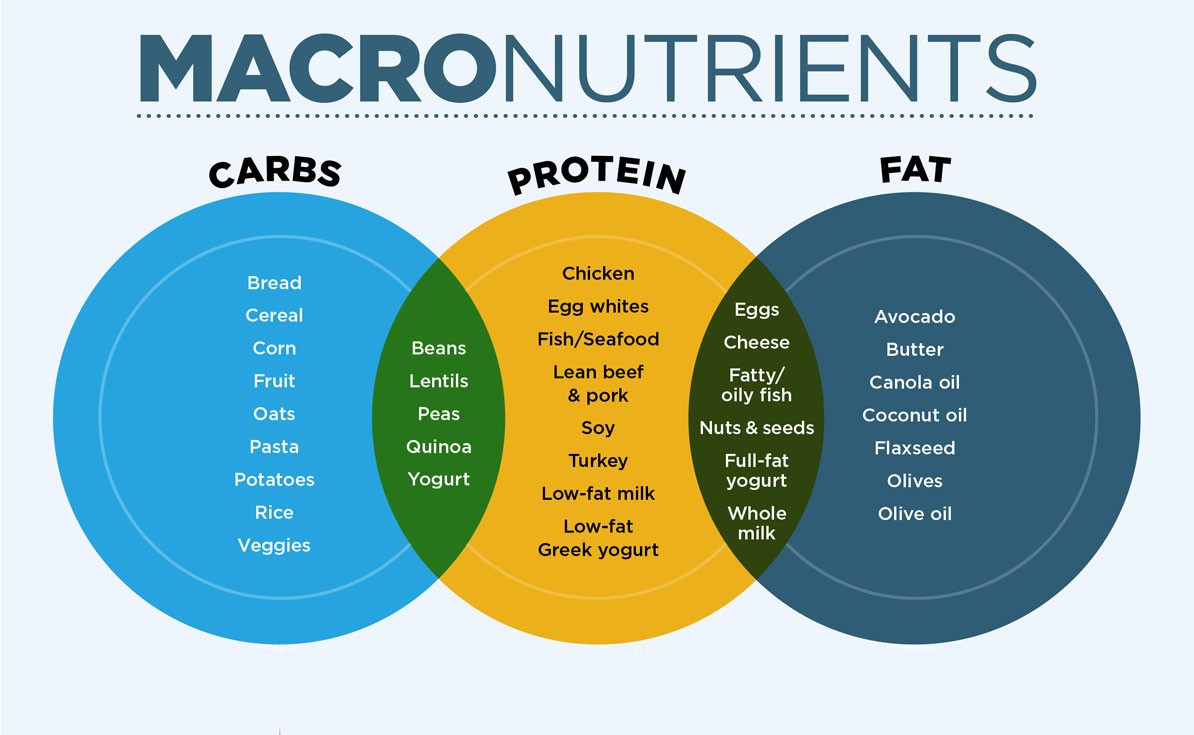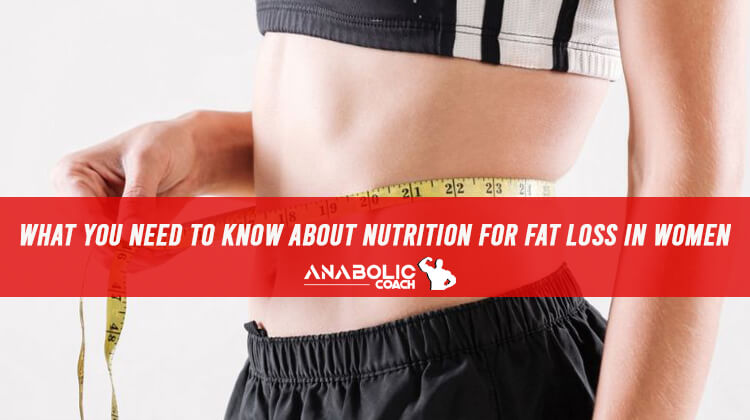While you might be spending considerable time in the gym burning those calories with your high-intensity interval training (HIIT) cardio and resistance training routines, without a proper dietary plan, you might find it hard losing substantial fat and weight.
First off, you need to adopt the best diet for fat loss that suits your peculiar body composition, nutrition needs, and lifestyle. This way you will be able to stimulate your metabolic rate, trigger thermogenesis and an increased level of perspiration which can then lead to fat burn.
But let’s not get ahead of ourselves, as we will start by revealing those time-tested macronutrient fat loss foods for women followed by effective fat loss nutrition strategies that you can adopt today for genuine weight and fat loss success.
Nutrition for Fat Loss in Women – Prioritizing a Balance in Your Macronutrients
One of the most basic fat loss tips for women has to do with the balance in your macronutrients. As you may know there are three macronutrients, namely; proteins, fats and carbohydrates, and if you want to promote fat loss, it is important for you to have a balance of these macronutrients in your daily meals.
Now there’s a general misconception amongst many people in society and particularly in the bodybuilding community that carbohydrates or carbs are detrimental to women’s metabolism and weight loss goals.
However, this erroneous belief is far from the truth as while simple carbs can lead to fat and weight gain, complex carbs on the other hand, are important for providing your body with its daily energy demands, especially when combined with the consumption of healthy fats.
With regards to protein, it is absolutely important that your daily meals are rich in protein food sources as protein will not only promote lean muscle mass gains, but also boost your fat loss efforts by increasing your level of satiety and preventing you from eating too much.

Ideally, a typical women’s weight loss diet plan should be made up of anywhere from 1.6 to 2.2 grams (g) of protein per kilogram (kg) of body weight. However, keep in mind that you should always adjust your daily protein consumption based on your expected level of activity.
So if you are a very active person, then the amount of protein you eat per day will be more than that consumed by someone with a relatively inactive or sedentary lifestyle.
The table below shows some of the best macronutrient food sources that promote fat loss in women.
| PROTEIN | FATS | CARBS |
| Eggs and lean meat – venison, turkey breasts, lamb, bison, chicken thighs, or lean beef | Fatty fish – anchovies, mackerel, herrings, or sardines | Whole grains – brown rice, quinoa, or oats |
| Seafood – salmon, tuna, scallops, shrimp, tilapia and other fatty fish for Omega-3s | Pure olive oil or flaxseed oil | Vegetables – cruciferous or leafy green veggies (cauliflower, broccoli, kale, cabbage, collards, spinach, Brussel sprouts), green peas, chopped carrots, corn, sweet potatoes |
| Cottage cheese and Greek yogurt | Fruits – coconuts, olives or avocados | Fruits – citrus, bananas, figs, mangoes, pineapples, apples, or berries |
| Plant-based protein sources like lentils, legumes, chickpeas, tempeh, soy, or tofu | Nuts – peanuts, pecans, macadamia nuts, hazelnuts, or almonds | |
| Seeds chia seeds, flax seeds, pumpkin seeds, sunflower seeds or sesame seeds |
Effective Fat Loss Nutrition Strategies
There are several effective nutrition strategies for fat loss in women. However, controlling your caloric intake is one of the most effective ways to guarantee fat loss.
If your goal is to lose body fat and weight, then you should adopt a calorie deficit nutrition plan. This is where your daily calorie consumption is less than the calories you burn during your scheduled daily workout sessions. To know what calories to consume if you want to lose body fat, you should first find out your TDEE which is an acronym for Total Daily Energy Expenditure.
Nevertheless, maintaining a daily caloric deficit of between 300 to 500 calories should be just sufficient.
Another thing you should seriously consider when planning your nutrition for fat loss is the type of food you decide to consume. It is important to consume food sources that are packed with essential micronutrients.
So while you may be on a caloric deficit, you consume foods that offer you a copious amount of essential minerals and vitamins. You can go for foods like berries, cruciferous or leafy green veggies, lean meats and eggs. These food sources are packed with essential micronutrients to keep you healthy even as you cut down on your daily food consumption by observing a caloric deficit for fat loss.
Nutrition for fat loss in women is incomplete without highlighting the importance of hydration to fat loss. Apart from keeping you alive, hydration is important as it can increase your level of satiety while reducing hunger pangs in the process. Also, hydration boosts both your digestion and rate of metabolism. You should typically drink between 8 and 10 cups of water daily, but aim to drink more water if you are a very active person.

In addition to this, you should maintain a consistent timing for your daily meals. You can eat anywhere from four to six small balanced meals everyday, but try spacing your meals for between 3 to 4 hours at a time.
Your meals should be rich in both macro and micronutrients, and you should avoid consuming refined and processed foods that can be detrimental to your fat loss goals as they provide your body with empty calories capable of dropping your energy levels while increasing your hunger pangs and blood sugar.
Finally, do not forget consuming carbs and protein-rich foods after a hectic workout. This will help you to replace your glycogen stores and recovery fast from your workout sessions. You should ideally consume a post-workout meal anywhere from half an hour to an hour after your training routine. Indeed your nutrient timing for fat loss is crucial, so take note!
Conclusion
It is no doubt that nutrition for fat loss in women is just as important as HIIT, cardio or strength training and should never be taken for granted.
As mentioned earlier, you should ensure that your meals are balanced with the right amount of macro and micronutrients to keep you healthy while providing your body with the right amount of calories needed for your daily workout sessions.
If you want more nutrition tips like information on healthy fats for fat loss, you can get in touch with us for free coaching today.


